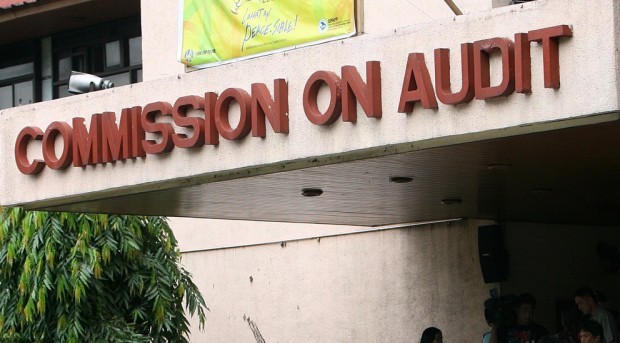Coast Guard, Department of Agriculture called out for undocumented use of COVID funds
MANILA, Philippines — The Commission on Audit (COA) has called out the Department of Agriculture (DA) for granting COVID-19 hazard pay to its regular employees totaling P31.34 million without the required supporting documents.
State auditors also flagged the Philippine Coast Guard (PCG) for failing to issue accountability documents for P35.32 million in medical equipment and for not using P7.87 million worth of these supplies despite a high infection rate among its personnel.
In its 2020 audit report, the COA said the agriculture agency failed to submit accomplishment reports and any record of attendance, including office authority for employees who reported for work during the pandemic, as basis for granting COVID-19 hazard pay.
State auditors said the nonsubmission of these documents deprived the review of the recipients’ qualifications and compliance with the conditions required by the government in granting COVID hazard pay.
The COA ordered the DA to submit the documents and told the agency to instruct its accountants to stop processing claims with incomplete papers.
Lack of accountability
In the same audit report, the COA said the DA used P24.84 billion, or 91.89 percent, of its P27.04-billion fund for COVID-19 response under the Bayanihan 1 and 2 laws.
The COA said P2.19 billion was unobligated due to delays in the procurement process, nonimplementation of projects due to unavailability of seeds and the late release of funds.
A separate audit report on the PCG noted that while the agency did not receive funds for its COVID-19 efforts, it was able to realign P 500.71 million from its budget for such activities.
Of this amount, the PCG obligated 80 percent, or P400.61 million, leaving an unspent balance of P100.1 million. It disbursed P371.17 million of the obligated funds to cover medical supplies and equipment, isolation tents, meals and cash advances for logistical and operational expenses of PCG personnel.
However, state auditors found that P35.32 million worth of medical equipment and supplies were issued to end users without property acknowledgement receipts and inventory custodian slips.
The issuance of the two documents was required by a 2012 COA circular to establish accountability and custodianship over the property.
“Hence, proper accountability and responsibility thereof could not be established, which may result in loss and wastage of government resources,” part of the audit report read.
It added that the absence of the documents might cast doubts on the regularity of the purchase of the items. Among the items bought were infrared thermo guns, trauma kits, stretchers, pulse oximeters, stethoscopes, adult and pediatric intubation sets, suction machines, ventilator, binocular microscope, external defibrillator, anesthesia machine, cardiac monitor, ECG machine, autoclave machine, diagnostic set, isolation tents, portable toilets, hospital beds, laboratory refrigerator for reagents, air-conditioning units and digital thermal scanners.
The COA also noted that the disbursement vouchers for these items were not supported with pictures of the delivered items, casting doubts on whether actual deliveries were made.
“This control procedure, if made prior to use and distribution, will also reduce the risk of loss and wastage of government resources and would ensure management’s (PCG) confidence on the physical existence and delivery of goods,” the audit body said.
The delivery receipts also lacked specific description of the items purchased and delivered, which state auditors said was an indispensable control measure to ensure proper accountability and responsibility of end users.
Unused equipment
State auditors also stressed that the property acknowledgement receipts and inventory custodian slips should be given only to end users, contrary to the PCG’s issuance of the documents to three PCG personnel who did not have custody of the items.
The PCG was advised to cancel the documents given to the PCG personnel and to issue these to the end users to transfer accountability to those who have physical custody of the items.
The agency was also flagged for P7.87 million worth of medical equipment bought through emergency procurement but remained idle and unused as of the end of 2020.
The equipment was delivered in May 2020 and purchased for the treatment of PCG personnel who were critically ill with COVID-19.
Among the medical equipment were a ventilator machine, automated external defibrillator, anesthesia machine, cardiac monitor, ECG machine and portable autoclave machine.
Auditors made an ocular inspection last Jan. 21 and found that some items were in sealed packages and others opened only for inspection purposes. The PCG should have “carefully planned what equipment are urgently needed in the attainment of its thrusts and objectives to ensure that government resources are effectively and efficiently utilized.”
The Inquirer has reached out to the PCG for comment, and they have committed to respond once the supporting documents are ready. INQ
